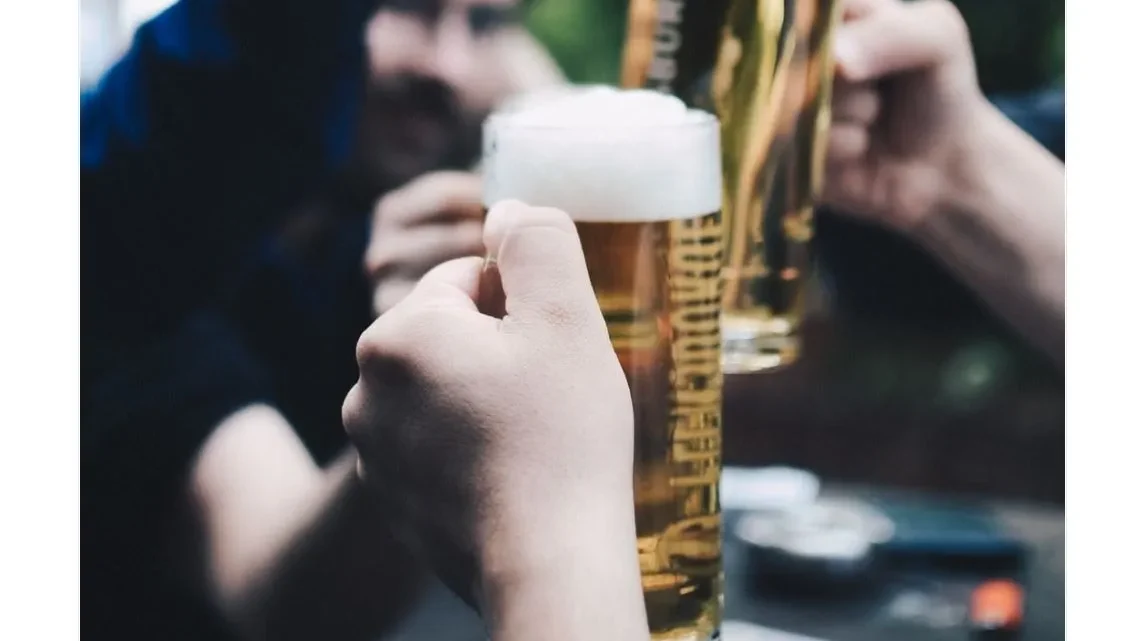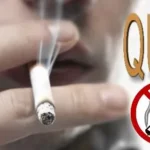
Benefits of Quitting Alcohol & How to Stop Drinking
May 19, 2022So you’ve decided to quit drinking? Congratulations! Quitting alcohol has amazing benefits for your mind, body, and spirit. Not only will you feel better in the short-term, but you’ll also enjoy long-term health benefits that come with quitting alcohol.
In this article, we’ll discuss the benefits of quitting alcohol, how to quit drinking, and how to deal with cravings. Keep reading for everything you need to know about quitting alcohol and starting your sober journey.
Benefits of Quitting Alcohol
Quitting alcohol can improve your overall health. Studies show that people who drink alcohol are more likely to develop chronic diseases, such as heart disease, stroke, and cancer. Alcohol also increases your risk for developing liver cirrhosis and other serious health problems.
Quitting alcohol can also improve your life. Quitting alcohol can help you feel better, be more productive, and have more energy.
Improved sleep quality
One of the most immediate benefits of quitting alcohol is improved sleep quality. Alcohol disrupts the normal sleep cycle by eliminating the release of melatonin, a hormone that helps regulate sleep.
Healthier teeth
When you quit drinking, your teeth will start to recover almost immediately. Alcohol is a major contributor to tooth decay and cavities. When you stop drinking, your risk of developing cavities decreases dramatically. Alcohol also causes gum disease, which can lead to serious health problems like heart disease and stroke. Quitting alcohol will improve your overall health and reduce your risk of developing these serious health problems.
Money saving

When it comes to the benefits of quitting alcohol, money saving is one of the most immediate and noticeable. Cutting out alcohol can save you a lot of money on not just your bar tab, but also in health care costs. Here are some ways that quitting alcohol can bonus your bank account:
- You’ll stop spending money on booze. Let’s face it: Drinking is expensive. A night out can easily run you $50 or more if you’re hitting up the bars, and that’s not including the cost of snacks or cab fare home. If you quit drinking, all that money stays in your pocket.
- You’ll save on medical expenses. Booze is bad for your health, and it can lead to a variety of costly medical problems down the line. Quitting now could save you from having to pay for expensive treatment down the road.
- You won’t have to worry about getting DUIs or other alcohol-related legal issues. This can save you a lot of money in legal fees and fines.
- You won’t have to spend as much on health care. Heavy drinkers are prone to many health problems, including liver disease, heart disease and pancreatitis. All of these diseases can be costly to treat.
- Stopping drinking will also make it easier to keep a job (source of income).
Improves Blood Pressure
If you’re looking to improve your blood pressure, cutting back on alcohol may be one step to take. According to the American Heart Association, alcohol can raise blood pressure in two ways. First, it can cause a temporary rise in blood pressure as your body metabolizes the alcohol. Second, long-term heavy drinking can lead to an increase in blood pressure because of the effects of alcohol on the heart and circulation.
If you’re concerned about your blood pressure, talking to your doctor about how much alcohol is safe for you is a good idea. The American Heart Association recommends no more than one drink per day for women and two drinks per day for men. If you currently drink more than that, gradually cutting back may help lower your blood pressure.
Increases Fertility
For both men and women, alcohol can reduce fertility by interfering with the production of sex hormones. Alcohol also impairs the ability to conceive by damaging the cells in the reproductive organs. Additionally, drinking increases the risk of miscarriage and stillbirth. If you are trying to conceive, it is best to abstain from alcohol altogether.
Increased energy levels
When people drink alcohol, they can feel tired and sluggish the next day. This is because alcohol slows down the body’s systems. When people stop drinking, they can often feel more energetic. This is because their bodies are not slowed down by the alcohol anymore. People who quit drinking can also lose weight, because alcohol contains a lot of calories.
Improved physical appearance
Alcohol is a toxin that is stored in the liver. Over time, this toxin causes the liver to enlarge, resulting in a condition called fatty liver disease. This disease can lead to cirrhosis of the liver, which can be fatal. Quitting alcohol will allow the liver to return to its normal size and function.
Alcohol also causes dehydration, leading to a dry, cracked complexion. Quitting alcohol will help restore moisture to the skin, making it look healthier and more radiant. Alcohol also causes redness in the face due to increased blood flow. This will diminish over time as well when alcohol is no longer consumed.
Reduced stress levels
When it comes to dealing with stress, alcohol is not your friend. In fact, research shows that quitting alcohol can lead to reduced stress levels.
One study found that those who drank heavily reported higher levels of stress than those who did not drink at all. The researchers also found that people who reduced their drinking or quit altogether experienced a decrease in their stress levels.
Quitting alcohol can also help improve sleep quality and reduce anxiety. So if you’re looking for a way to reduce your stress levels, quitting alcohol may be the answer for you.
Weight loss
It is no secret that alcohol consumption can lead to weight gain. In fact, research has shown that people who drink regularly are more likely to be overweight or obese than those who don’t drink at all. This is because alcohol is high in calories and it can be very easy to overindulge when drinking. Also, when people drink, they often eat unhealthy foods and make poor decisions about what to eat.
One of the main benefits of quitting alcohol is that you will likely lose weight. When you give up alcohol, you are cutting out a lot of empty calories from your diet. In addition, many people find that they have more energy and focus when they don’t drink. This can make it easier to stick to a healthy diet and exercise plan.
Improved mood
There are significant mental health improvements that occur when you give up alcohol.
One of the main benefits is that your mood will improve significantly. Alcohol is a depressant and can cause mood swings and even depression. When you quit alcohol, you will no longer have those mood swings and you will start to feel more stable and happy. You will also have more energy and be more motivated to do things.
Another benefit of quitting alcohol is that you will start to feel more connected to others. Alcohol can cause people to become withdrawn and isolate themselves from friends and family.
Better mental health
Alcoholism is a serious disease that can take a toll on a person’s mental health. Quitting alcohol can help improve mental health in many ways.
Quitting alcohol can help reduce anxiety and depression. Alcohol is a depressant, and people who are struggling with depression or anxiety may be using alcohol as a way to self-medicate. When they quit alcohol, they no longer have that crutch to rely on, and they may start to feel better mentally.
Quitting alcohol can also help improve cognitive function. Alcohol can impair cognitive function, leading to problems with memory, focus, and decision-making. When people quit alcohol, their cognitive function often improves.
Improve relationships
Alcohol can have a devastating effect on relationships. It can lead to fights, arguments, neglect, betrayal, and even divorce. When someone quits alcohol, they will likely find that their relationships improve dramatically. They will be less irritable and more able to communicate effectively. They will also be less likely to get into fights or arguments.
Quitting alcohol can also lead to a stronger relationship with oneself. People who quit often find that they are more able to take care of themselves and set boundaries. They no longer need alcohol to help them cope with life’s challenges and they are better able to face them head on.
Increased focus
Quitting alcohol can have many benefits for your health and well-being. One of the most noticeable benefits is an increased focus and productivity. When you are sober, you are able to think more clearly and stay on task. You may also find that you are less irritable and more patient when you are not drinking. Additionally, your decision-making skills will improve, which can lead to greater success in all areas of your life.
Ultimately, quitting drinking can lead to a great benefit; namely a better quality of life for you and those around you.
How to Stop Drinking
Quitting drinking can be a rather difficult process, as you will have to make some lifestyle changes. Although alcohol has been a part of our culture for generations, it is now possible to live a full, happy and healthy life without drinking.
Understand Your Issues with Drinking
When you are trying to quit drinking, you must first understand why you are drinking. When you understand the reasons why you drink, then you can find the solutions that will work for you. You may need to seek counseling to help you get to the root of your drinking issues. Here are a few reasons why people drink:
- They are depressed. They try to cope with their feelings by drinking.
- They are lonely. They use alcohol as a way to feel better when they are alone.
- They are bored. They drink to feel better when they are bored.
- They are stressed. They use alcohol as a way to calm their nerves.
Stop Drinking for a Month
It can be difficult to stop drinking, but there are ways to make it easier. One way is to try stopping drinking for a month. This will give you a chance to see how you feel without alcohol and also how your body reacts. You may find that you don’t need alcohol as much as you thought or that you don’t feel good when you don’t drink. You can also use this time to build up your willpower and determination.
Another way to stop drinking is by setting some goals for yourself. This could involve limiting yourself to only one drink per day or only drinking on weekends. It’s important that you set realistic goals that are achievable so that you can stay motivated throughout the process.
Get Rid of Alcohol in Your Home
If you are trying to stop drinking, it is important to get rid of all alcohol from your home. This means removing any liquor, beer, or wine from your refrigerator, cabinets, and anywhere else you may store it. If you have trouble resisting the urge to drink, getting rid of all alcohol will make it much harder for you to give in to temptation.
If you are trying to stop drinking, one of the best things you can do is remove alcoholic beverages from your diet altogether. This means no more beer, liquor, or wine. If you don’t drink alcoholic beverages, it will be much harder for you to give in to the temptation to drink.
Find a Support Group
If you are struggling with an alcohol addiction, finding a support group is an important step in your road to recovery. There are many different types of groups available, so it is important to find one that meets your needs.

Some groups focus on abstinence, while others promote moderation. Some are religious in nature, while others are more secular. The important thing is to find a group that feels like a good fit for you and that you can attend regularly.
Support groups provide a safe place for you to share your experiences and feelings about alcohol addiction with others who understand what you are going through. They can also provide helpful information and resources about how to stop drinking .
Drink More Water
Water is the best way to sober up and stop drinking. When you drink alcohol, it dehydrates your body, which makes you feel tired and hungover. By drinking a lot of water, you can rehydrate your body and reduce the effects of alcohol. Water also helps flush out toxins from your system. It’s important to drink plenty of water before and after drinking alcohol, as well as during the day.
Exercise Regularly
Not only does exercise help rid the body of toxins, it also releases endorphins that improve mood and reduce stress – both of which can lead to cravings for alcohol. In addition, regular exercise helps burn calories and may help you lose weight, which can make it easier to stick to your goals when you’re not drinking.
- According to the National Institute on Alcohol Abuse and Alcoholism, exercise can help you stop drinking. Regular exercise reduces stress levels, helps you sleep better, and provides a distraction from drinking urges.
- If you’re not currently active, start small by adding 10-15 minutes of walking or other moderate activity to your day. Gradually increase your time as you feel more comfortable.
- Find an activity that you enjoy and stick with it. Whether it’s running, cycling, swimming, or dancing, find something that makes you happy and will keep you coming back for more.
- Join a group fitness class or team sport to make working out more fun and social. This can also help hold you accountable to sticking with your routine.
- Don’t overdo it!
Eat Healthy and Balanced Meals
The best way to stop drinking is to eat healthy and balanced meals. When you’re well-nourished, your body will be less likely to crave alcohol. Eating plenty of fruits, vegetables, whole grains, and lean protein will give you the nutrients you need to stay healthy and feel satisfied. Additionally, make sure to drink plenty of water throughout the day. This will help flush out toxins from your body and keep you hydrated. If you find yourself struggling with cravings for alcohol, try distracting yourself with other activities such as exercise, socializing, or creative endeavors. By taking care of your body and mind, you can overcome addiction and live a healthier life.
Find Support from Friends and Family
When you are trying to stop drinking, it is important to have the support of your friends and family. They can help you stay accountable and provide encouragement. Here are a few ways that they can help:
- Ask your friends and family to support your decision to quit drinking. Let them know that you need their help to stay on track.
- Ask them not to tempt you with drinks or allow you to drink in their presence. This will help you avoid any triggers that might make you want to drink.
- Make sure that they understand the dangers of drinking and how it can hurt your recovery efforts. Let them know that they need to be supportive, not judgmental.
- Plan social events together that do not involve alcohol. This will allow you to still enjoy being around your friends and family while staying sober.
Seek professional help
If you are struggling with alcohol addiction, seeking professional help is the best step you can take. Counselors and therapists can provide you with the tools you need to overcome your addiction and stay sober. They can also help you deal with any underlying issues that may be contributing to your drinking problem.
Therapists are specifically trained to deal with addiction and can offer a variety of treatments that can be tailored to the individual’s needs. Some common therapies used to treat alcohol addiction include cognitive-behavioral therapy, motivational enhancement therapy, and 12-step facilitation therapy. These therapies can help the person struggling with addiction learn how to cope with triggers and cravings, develop healthy coping mechanisms, and build a support network.
A counselor can help you create a plan and a timeline for quitting and give you the tools you need to stay sober. Alcohol abuse can be very dangerous, so it’s important to get help before it becomes too difficult to quit on your own.
One of the big advantages of quitting drinking is that you can live a more peaceful life. You don’t have to worry about breaking the law or serving jail time for a DUI. You can also avoid the risks associated with alcohol consumption, such as car accidents, domestic violence, sexual assault, and more.
So if you are ready to make a change, then I encourage you to take the first step today. You can do it!









